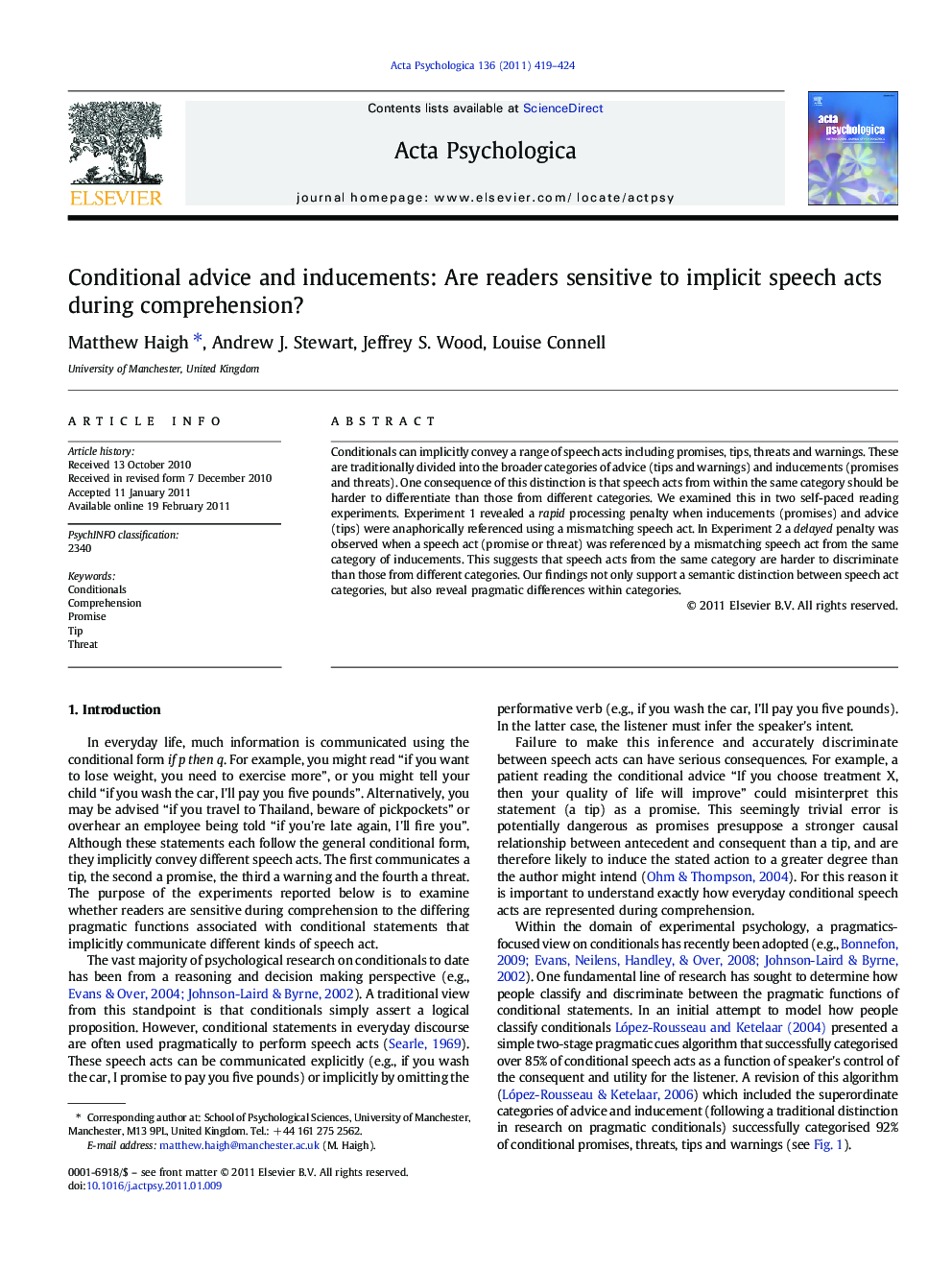| Article ID | Journal | Published Year | Pages | File Type |
|---|---|---|---|---|
| 920144 | Acta Psychologica | 2011 | 6 Pages |
Conditionals can implicitly convey a range of speech acts including promises, tips, threats and warnings. These are traditionally divided into the broader categories of advice (tips and warnings) and inducements (promises and threats). One consequence of this distinction is that speech acts from within the same category should be harder to differentiate than those from different categories. We examined this in two self-paced reading experiments. Experiment 1 revealed a rapid processing penalty when inducements (promises) and advice (tips) were anaphorically referenced using a mismatching speech act. In Experiment 2 a delayed penalty was observed when a speech act (promise or threat) was referenced by a mismatching speech act from the same category of inducements. This suggests that speech acts from the same category are harder to discriminate than those from different categories. Our findings not only support a semantic distinction between speech act categories, but also reveal pragmatic differences within categories.
Research Highlights► Conditional speech acts are often classified as either advice or inducement. ► We examined whether people discriminate between speech acts during comprehension. ► Speech acts from different categories were discriminated from each other rapidly. ► Speech acts from the same category took longer to discriminate from each other. ► Readers are sensitive to the pragmatic cues associated with conditional speech acts.
